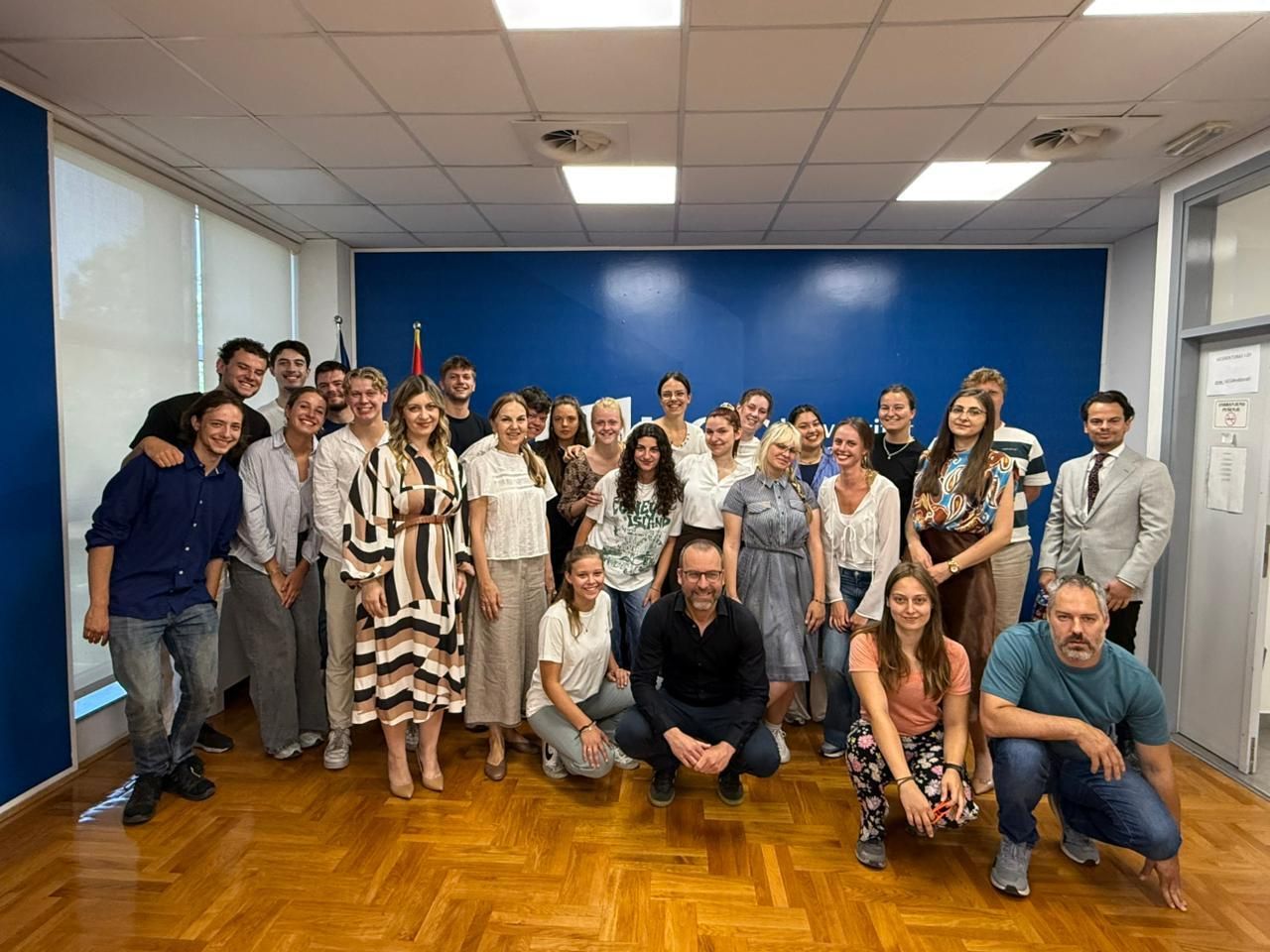Understanding climate risk perceptions in Montenegro’s tourism sector
Tourism students from BUas and Wageningen University & Research contribute to more resilient destinations. As climate change increasingly affects tourism worldwide, understanding how local communities perceive climate risks is essential for building resilient destinations. In this context, students from the Bachelor of Science Tourism programme recently conducted a three-week field study in Montenegro.
Learning through low-impact travel
The fieldwork began with a deliberate choice for slow travel, a sustainable approach that minimises environmental impact and with respect for local cultures. Students traveled overland by train and bus to their destination, setting the tone for a conscious and reflective research journey.
Upon arrival in Montenegro, students were introduced to the country’s tourism landscape, including its current practices, developments, and pressing challenges but also cultural immersion. This orientation provided a foundation for their field research.
Field Research: exploring climate vulnerabilities
Working in teams, students conducted research in four geographically diverse tourism regions:
- Boka Kotorska (Bay region)
- Žabljak & Pljevlja (Mountain region)
- Virpazar (Lake region)
- Bar & Ulcinj (Coastal region)
Their research focused on identifying climate risk exposure and vulnerabilities specific to each destination. These case studies and findings were integrated into the broader Destination RiskScape project, an initiative funded by the Centre of Expertise Leisure, Tourism and Hospitality (CELTH), in collaboration with Breda University of Applied Sciences, NHL Stenden University of Applied Sciences, the European Tourism Futures Institute, and The Travel Foundation.
Destination RiskScape: a tool for resilient tourism
Destination RiskScape aims to develop a science-based, user-friendly tool that enables tourism destinations worldwide to assess and understand their climate risk profiles. The students’ findings contribute directly to the development of this methodology, offering grounded insights from the field.
Senior researcher Harald Buitendijk (Breda University of Applied Sciences): “The student research in Montenegro mainly shows that tourism remains seasonal work for many people in destinations. The focus is often on securing income in a competitive market. As relevant as addressing climate risks may be, many stakeholders simply don’t have the capacity to engage with it. With the accessible tools we are developing in this project, an online risk scan and an offline serious game, we help stakeholders explore and implement climate measures together, in order to strengthen the long-term resilience of tourism as a source of income.”
Engaging stakeholders and sharing insights
The fieldwork concluded with a stakeholder event at the University of Montenegro, where students presented their initial findings. Key insights included:
- The need to address tensions arising from rapid tourism development.
- The importance of locally-rooted, collaborative climate action planning.
- The value of aligning local strategies with a clear national policy framework.
- As Montenegro advances toward European Union membership, aligning its tourism and climate policies with EU frameworks becomes increasingly relevant.
These findings underscore the importance of inclusive, multi-stakeholder approaches to climate adaptation in tourism.
Strengthening international cooperation
The project was further supported by an ERASMUS grant aimed at fostering collaboration between Dutch and Montenegrin academic institutions. As part of this exchange, three Montenegrin students studied a semester in Breda and now actively participate in the field practicum alongside their Dutch peers.
The Bachelor of Science Tourism is a joint degree programme offered by Breda University of Applied Sciences and Wageningen University & Research.



